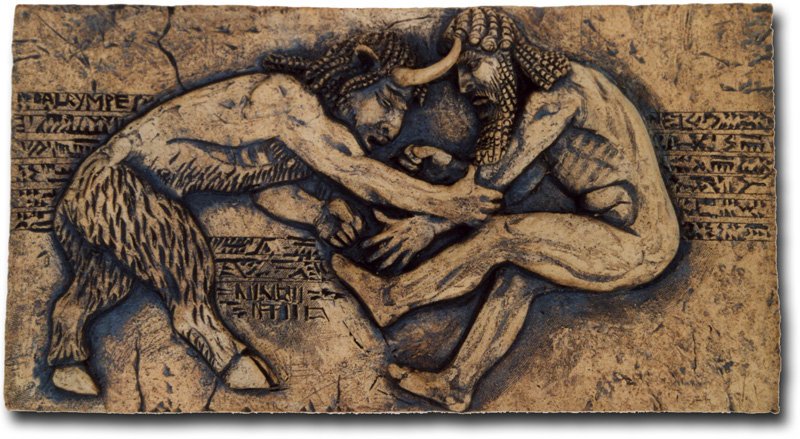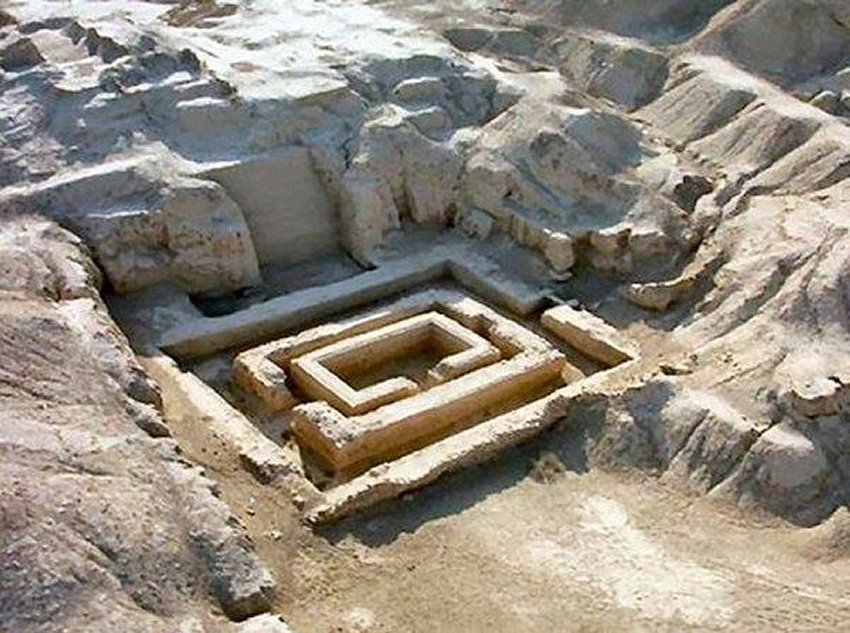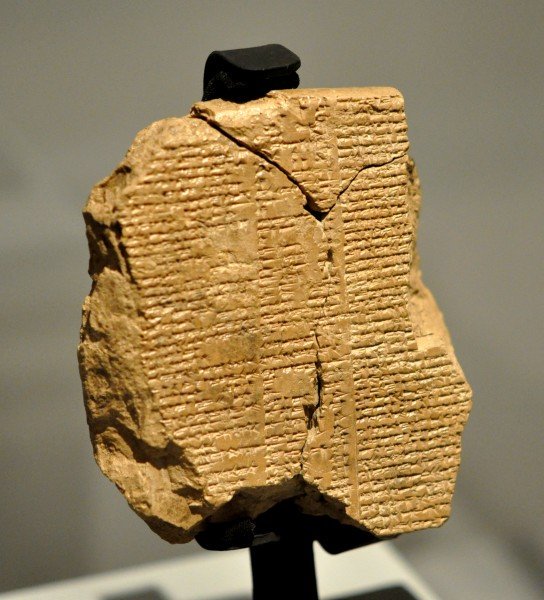Walls Of Uruk Built By Sumerian King Gilgamesh 4,500 Years Ago
A. Sutherland - AncientPages.com - In Mesopotamian mythology, Gilgamesh is a demigod of superhuman strength who built the city walls of Uruk to defend his people from external threats, and traveled to meet the sage Utnapishtim, who had survived the Great Deluge.
Gilgamesh is usually described as two-thirds god and one-third man and is said to have lived an exceptionally long life. The Sumerian King List records his reign as 126 years.
The humans would turn their backs on the gods if they did not tame Gilgamesh so the gods created the King a massive playmate, Enkidu; part-man, part-beast. Image credit: Project Gilgamesh
Known as 'Bilgames’ in the Sumerian, 'Gilgamos’ in Greek, and associated closely with the figure of Dumuzi from the Sumerian poem The Descent of Inanna, Gilgamesh is widely accepted as the historical 5th king of Uruk whose influence was so profound that myths of his divine status grew up around his deeds and finally culminated in the tales found in The Epic of Gilgamesh.
The Walls Of Uruk
According to the Sumerian King List, Uruk was founded by King Enmerkar around 4500 BC. It was the largest settlement in southern Mesopotamia, if not the world.
It was a true city dominated by monumental mud-brick buildings decorated with mosaics of painted clay cones embedded in the walls, and extraordinary works of art.
Large-scale sculpture in the round and relief carving appeared for the first time, together with metal casting using the lost-wax process.
At this time Uruk was surrounded by a massive wall, which according to tradition was built on the orders of King Gilgamesh who was later remembered as a great hero.
In the context of the ancient king who built them, they represent the immortality he achieved through his acts. The walls of Uruk symbolize the great accomplishments of which mortals are capable.
Gilgamesh – An Ancient Hero Whose Deeds Live On
In The Epic of Gilgamesh, the great king is thought to be too proud and arrogant by the gods and so they decide to teach him a lesson by sending the wild man, Enkidu, to humble him. Enkidu and Gilgamesh, after a fierce battle in which neither are bested, become friends and embark on adventures together.
When Enkidu is struck with death, Gilgamesh falls into deep grief and, recognizing his own mortality through the death of his friend, questions the meaning of life and the value of human accomplishment in the face of ultimate extinction.
A newly discovered partially broken tablet V of the Epic of Gilgamesh: "the episode of the journey of Gilgamesh and Enkidu." Image credit: Osama Shukir Muhammed Amin
Casting away all of his old vanity and pride, Gilgamesh sets out on a quest to find the meaning of life and, finally, some way of defeating death. In doing so, he becomes the first epic hero in world literature. The grief of Gilgamesh, and the questions his friend's death evoke, resonate with every human being who has wrestled with the meaning of life in the face of death.
Although Gilgamesh ultimately fails to win immortality in the story, his deeds live on through the written word and, so, does he.
Gilgamesh became the hero of many later stories and epics.
Written by – A. Sutherland - AncientPages.com Senior Staff Writer
Copyright © AncientPages.com All rights reserved. This material may not be published, broadcast, rewritten or redistributed in whole or part without the express written permission of AncientPages.com
Expand for referencesMore From Ancient Pages
-
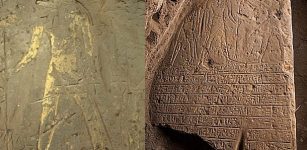 Ancient Paintings Discovered At Kom Ombo Temple At Aswan, Egypt
Archaeology | Oct 4, 2018
Ancient Paintings Discovered At Kom Ombo Temple At Aswan, Egypt
Archaeology | Oct 4, 2018 -
 Danger Lurking In The Woods – Unknown Force And Mysterious Lights – Part 1
Featured Stories | Jul 6, 2018
Danger Lurking In The Woods – Unknown Force And Mysterious Lights – Part 1
Featured Stories | Jul 6, 2018 -
 Saraswati – Hindu Goddess Of Knowledge, Learning And Vedic Symbol Of Speech, Vach
Featured Stories | Jun 23, 2021
Saraswati – Hindu Goddess Of Knowledge, Learning And Vedic Symbol Of Speech, Vach
Featured Stories | Jun 23, 2021 -
 Long-Lost Ancient Tomb Of ‘China’s Shakespeare’ Finally Found
Archaeology | Aug 31, 2017
Long-Lost Ancient Tomb Of ‘China’s Shakespeare’ Finally Found
Archaeology | Aug 31, 2017 -
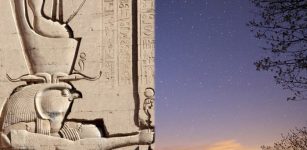 Ancient Egyptians Knew About ‘Demon Star’ Algol’s Variability 3,000 Years Before Western Astronomers
Archaeology | Nov 13, 2018
Ancient Egyptians Knew About ‘Demon Star’ Algol’s Variability 3,000 Years Before Western Astronomers
Archaeology | Nov 13, 2018 -
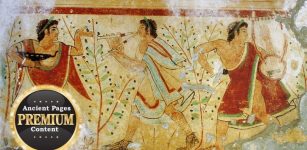 Intriguing Evidence Etruscans May Have Visited Canada
Ancient Mysteries | Sep 30, 2018
Intriguing Evidence Etruscans May Have Visited Canada
Ancient Mysteries | Sep 30, 2018 -
 5,000-Year-Old DNA Could Solve The Mystery Of Genetic Changes In Europe
Archaeology | Mar 8, 2022
5,000-Year-Old DNA Could Solve The Mystery Of Genetic Changes In Europe
Archaeology | Mar 8, 2022 -
 Khufu Boat And Unique Boat-Building Technique Of Ancient Egyptians
Artifacts | Jun 20, 2017
Khufu Boat And Unique Boat-Building Technique Of Ancient Egyptians
Artifacts | Jun 20, 2017 -
 Did Our Ancestors Know About Artificial Intelligence?
Ancient Technology | Sep 2, 2015
Did Our Ancestors Know About Artificial Intelligence?
Ancient Technology | Sep 2, 2015 -
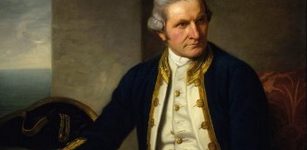 On This Day In History: Captain James Cook Spotted The East Coast Of Australia – On Apr 19, 1770
News | Apr 19, 2016
On This Day In History: Captain James Cook Spotted The East Coast Of Australia – On Apr 19, 1770
News | Apr 19, 2016 -
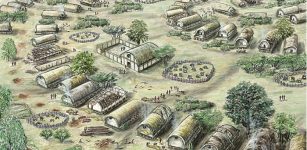 6,000 Years Ago, Europe’s Oldest Cities Relied On Fertilizer And Plant Protein, Isotope – Analysis Shows
Archaeology | Dec 19, 2023
6,000 Years Ago, Europe’s Oldest Cities Relied On Fertilizer And Plant Protein, Isotope – Analysis Shows
Archaeology | Dec 19, 2023 -
 Why Was Celebration Of Christmas, Easter, Midsummer And Saint’s Day Forbidden In Scotland?
Ancient History Facts | Dec 5, 2024
Why Was Celebration Of Christmas, Easter, Midsummer And Saint’s Day Forbidden In Scotland?
Ancient History Facts | Dec 5, 2024 -
 On This Day In History: Peter The Great Defeats Charles XII Of Sweden At The Battle Of Poltava – On June 28, 1709
News | Jun 28, 2016
On This Day In History: Peter The Great Defeats Charles XII Of Sweden At The Battle Of Poltava – On June 28, 1709
News | Jun 28, 2016 -
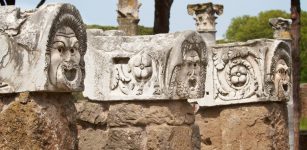 Ostia Antica – Unique Ancient Harbor City In The Suburbs Of Rome
Civilizations | Nov 29, 2018
Ostia Antica – Unique Ancient Harbor City In The Suburbs Of Rome
Civilizations | Nov 29, 2018 -
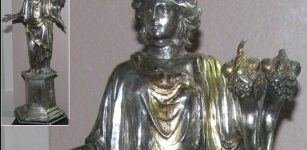 Abundantia: Roman Goddess Who Was Shaking Her Gifts From Cornucopia – ‘Horn Of Plenty’
Featured Stories | Nov 4, 2019
Abundantia: Roman Goddess Who Was Shaking Her Gifts From Cornucopia – ‘Horn Of Plenty’
Featured Stories | Nov 4, 2019 -
 Underground Catacombs Of Alexandria: Ancient Time Capsule Which Remained Hidden For Almost Two Millennia
Featured Stories | Sep 20, 2016
Underground Catacombs Of Alexandria: Ancient Time Capsule Which Remained Hidden For Almost Two Millennia
Featured Stories | Sep 20, 2016 -
 On This Day In History: Tokugawa Shogunate Begins In Japan After Historical Battle – On Oct 21, 1600
News | Oct 21, 2016
On This Day In History: Tokugawa Shogunate Begins In Japan After Historical Battle – On Oct 21, 1600
News | Oct 21, 2016 -
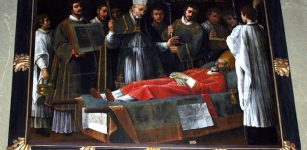 On This Day In History: Archbishop Thomas Becket Murdered – On Dec 29, 1170
News | Nov 29, 2016
On This Day In History: Archbishop Thomas Becket Murdered – On Dec 29, 1170
News | Nov 29, 2016 -
 Medieval Music Wasn’t Only Supposed To Be Beautiful To Listen To – A New Study Suggests
Archaeology | Jun 8, 2023
Medieval Music Wasn’t Only Supposed To Be Beautiful To Listen To – A New Study Suggests
Archaeology | Jun 8, 2023 -
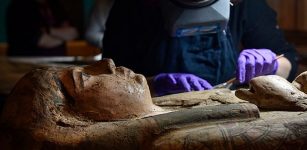 Never-Before-Seen 3,000-Year-Old Paintings Of Egyptian Goddess Amentet Discovered Inside Coffin Of A Mummy
News | Apr 7, 2020
Never-Before-Seen 3,000-Year-Old Paintings Of Egyptian Goddess Amentet Discovered Inside Coffin Of A Mummy
News | Apr 7, 2020

